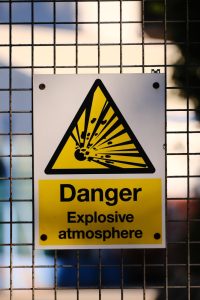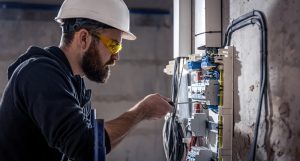How does authorization for electricians work?
Hiring a licensed electrician is essential for the safety of any electrical installation, whether in a residential or industrial setting. A licensed contractor ensures that installations are carried out according to electrical safety standards and reduces the risk of accidents and injuries that can result from improperly performed work. In fact, insurance companies often require electrical work to be carried out by a licensed contractor in order for insurance to be valid, especially for damage caused by electrical faults. Without authorized work, a faulty installation can not only lead to electrical damage and fires, but also mean that the insurance company will not cover the damage.
The importance of the Authorized Business Type and the Kollael company service
All electrical contractors need to be registered for a specific type of activity that entitles them to carry out that particular category of electrical work. Through the Kollaelföretaget service, you can easily check whether a company is registered for the work you need done. For example, an electrical contractor needs to be registered for 'electricity generation installations' to be able to work on the installation of solar panels.
This registration is a way of ensuring that the company has the right skills and resources to deal with the specific risks of each type of activity. Proper registration is thus a guarantee of quality for the customer and a safeguard against possible accidents and incorrect installations.
Electrical Contractor with the Right Authorization: A Minimum Requirement
According to Swedish legislation, every electrical company needs to have at least one electrical installer who is authorized to ensure that their work complies with electrical safety regulations. This is called a compliance electrician, and they are responsible for ensuring that all electrical installations are carried out correctly. The Electrical Safety Authority clarifies that it is not required for every single electrician in the company to be authorized, but that everyone who performs electrical work must be included in the company's self-inspection program and work under the supervision of an authorized electrical installer.
This means that even if an electrician does not have a personal authorization, he or she can still carry out professional electrical work as long as it is done within the framework of an authorized company. The authorized electrician then acts as a guarantee that the work is done safely and legally.
Different types of authorization for electricians
The Electrical Safety Authority provides three levels of authorization for electricians, and these authorizations determine what an electrician is entitled to work with. The current authorization types are:
1. B - Limited authorization: Electricians with this authorization may carry out some simple electrical installations on low-voltage installations, such as working on electrical outlets, lighting fixtures and wiring of fixed electrical equipment. The B license is equivalent to the previous BB1, BB2 and BB3 licenses; however, for projects requiring installation in switchboards, a higher license, such as AL or A, is required.
2. AL - Low Voltage Authorization: This authorization covers all low voltage installations and gives the right to work on circuits of up to 1000 volts AC or 1500 volts DC. The AL authorization means that the electrician can work independently on installations in residential, commercial buildings and industrial environments. Authorization AL replaces the previous ABL authorization.
3. A - Full Authorization: This is the highest level of authorization and entitles electricians to work on both high and low voltage installations. A authorization is usually not necessary for common residential installations but may be a requirement for working with high voltage in specific environments such as power plants and industrial facilities.
Certified vs. Authorized: What's the Difference?
It is important to understand that an electrician can be certified without being authorized by the Electrical Safety Authority. Certification shows that the electrician has undergone training and has certain qualifications, but it does not mean that the person is authorized to carry out electrical installations independently. To obtain authorization, the electrician needs both training and work experience according to the requirements set by the Electrical Safety Authority.
Kravkompetens - Your Partner for Authorization B and AL Training
Kravkompetens offers online training courses for Authorization B and AL, allowing you to become an authorized electrician in a flexible way and at your own pace. With these courses, if you want to work in electrical installations, or are already working in electricity, you can get the qualifications you need to develop your career. Authorization B is ideal for those who want to work on basic electrical installations, while Authorization AL opens up the possibility of working independently on all types of low-voltage installations.

More Posts
-
Explosive Environment
ATEX – Arbete i Explosionsfarlig Miljö Webbutbildning / E-learning
kr3,995.00 BOOK A COURSE -
protection device
APV Step 2.3 competence Safety device manager
kr2,995.00The original price was: €2,995.00.kr2,295.00The current price is: £2,295.00. BOOK A COURSE








